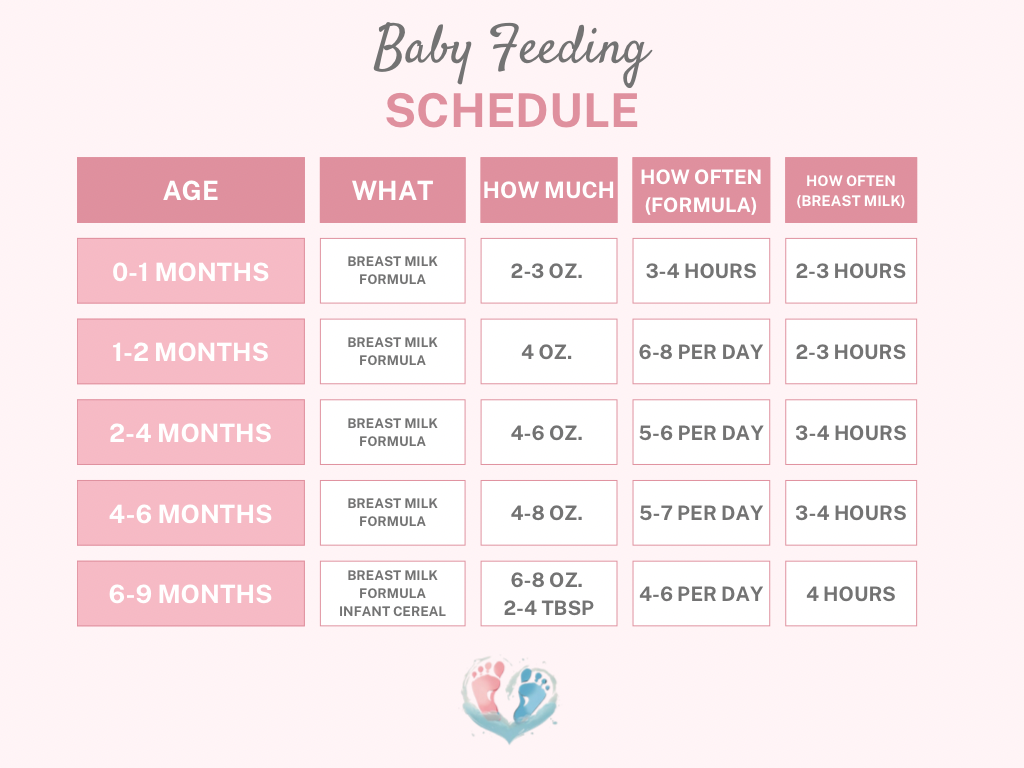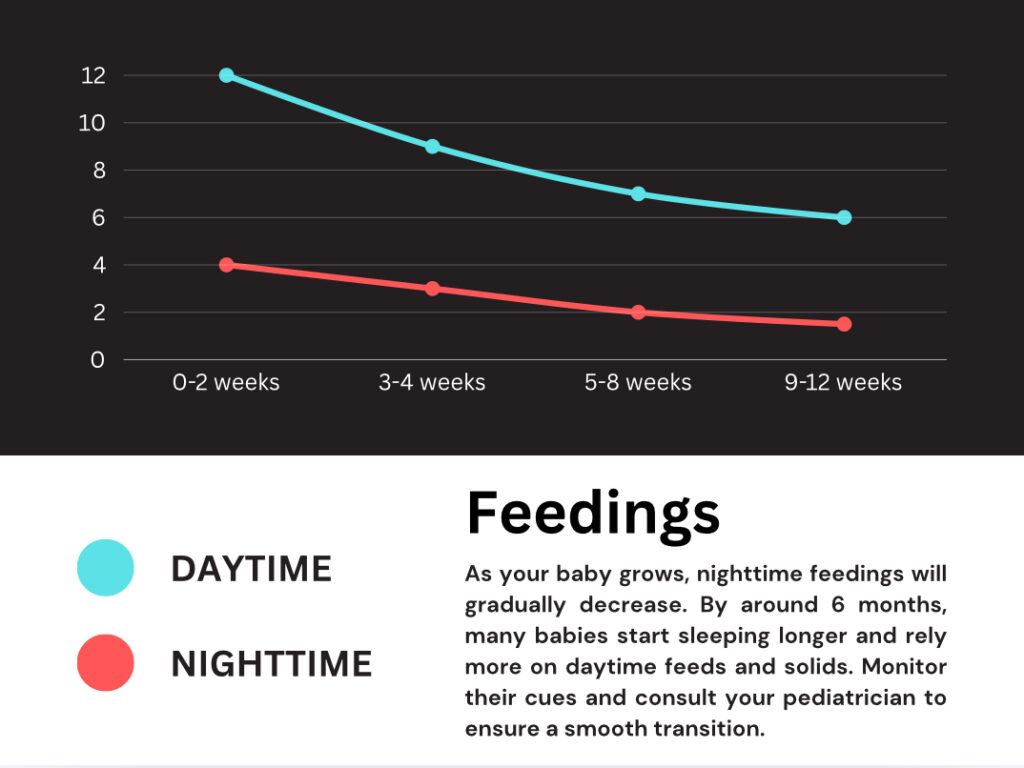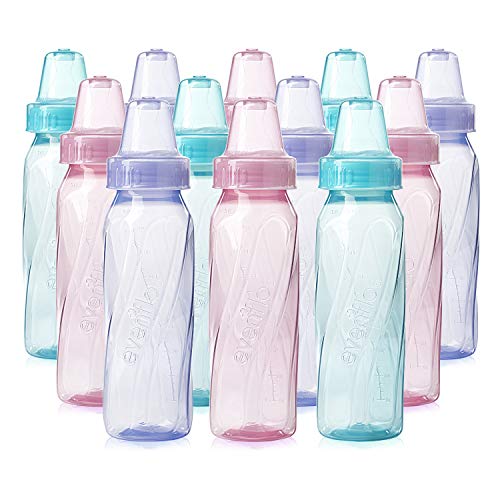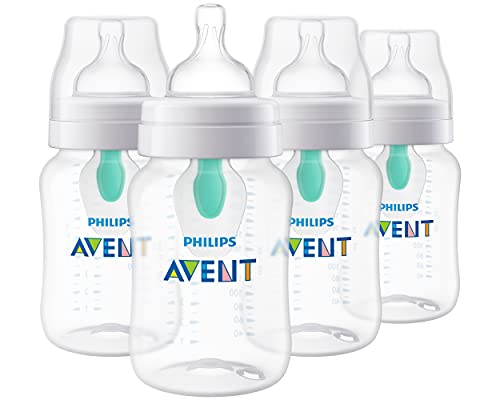Newborn Feeding Schedule: How Often Should Your Baby Eat and How Much is Enough?
Welcome to the wonderful, wild world of newborn feeding. If you’re feeling a bit overwhelmed right now, take a deep breath – we’ve all been there. I remember when I brought my little one home, I felt like I was constantly wondering, “Am I doing this right?” Well, grab a cup of coffee (or tea, if that’s more your speed), and let’s chat about newborn feeding schedules.
In this article, we’ll cover everything you need to know about feeding your precious bundle of joy. We’ll talk about how often to feed, how much to feed, and even tackle those middle-of-the-night feedings (spoiler alert: they’re not fun, but they’re totally doable). I’ll share some personal experiences, expert advice, and hopefully, by the end, you’ll feel a bit more confident about your newborn feeding routine.
Remember, every baby is unique, and what works for one might not work for another. So take what resonates with you, leave what doesn’t, and trust your instincts. You’ve got this!

The Basics of Newborn Feeding
Alright, let’s start with the basics. Feeding your newborn is arguably one of the most important tasks you’ll have in those first few weeks (and months) of parenthood. No pressure! It’s not just about nourishment – it’s about bonding, comfort, and helping your little one grow and thrive.
Recent research suggests that newborns should be fed on demand, which typically means every 2-3 hours. This frequency is crucial for several reasons:
1. Newborns have tiny tummies, about the size of a cherry at birth!
2. Frequent feeding helps establish milk supply for breastfeeding moms.
3. It ensures your baby gets enough calories for rapid growth and development.
I remember feeling like a 24/7 milk dispenser in those early days. My daughter seemed to be hungry all the time! But trust me, this phase doesn’t last forever. As your baby grows, their feeding patterns will become more predictable.

What is the best newborn feeding schedule?
Let’s break this down into manageable chunks, shall we?
Daytime Feeding
During the day, expect to feed your newborn every 2-3 hours. This means you might be feeding 8-12 times in a 24-hour period. Sounds exhausting, right? It can be, but remember – this is temporary!
Here’s a little memory for you: I once tried to time my daughter’s feedings perfectly. I had a fancy app and everything. But you know what? Babies don’t read schedules. Sometimes she’d want to eat after just an hour, and other times she’d sleep for a glorious 4-hour stretch. The lesson? Flexibility is key!
Nighttime Feeding
Ah, nighttime feedings – the bane of every new parent’s existence. But here’s the thing: they’re absolutely necessary for your newborn. In the first few weeks, you’ll likely need to wake your baby every 3-4 hours to feed, even at night.
I know, I know. It seems counterintuitive to wake a sleeping baby. But remember those tiny tummies we talked about? They need frequent refills to keep your baby growing and thriving.
Pro tip: Keep nighttime feedings as low-key as possible. Dim lights, quiet voices, and minimal stimulation can help your baby learn the difference between day and night.

Recognizing Newborn Feeding Cues: When and How to Respond
Rather than watching the clock like a hawk, pay attention to your baby’s feeding cues. These might include:
- Rooting (turning head and opening mouth)
- Putting hands to mouth
- Lip smacking
- Fussiness
Fun fact: Crying is actually a late sign of hunger. If you can catch the early cues, feeding time will likely be much smoother!

How Much Should I Feed My Newborn?
This is where things can get a bit tricky, especially if you’re breastfeeding. Unlike bottle feeding, where you can see exactly how much your baby is consuming, breastfeeding can feel like a guessing game.
Breastfeeding
If you’re breastfeeding, the general rule of thumb is to let your baby feed on demand and for as long as they want. In the early days, this might mean 15-20 minutes on each breast.
Signs that your baby is getting enough include:
- 6-8 wet diapers a day
- 2-5 bowel movements a day
- Steady weight gain
Remember, every baby is different. My daughter was a speedy eater and would be done in 10 minutes flat, while my friend’s son would leisurely feed for 40 minutes or more! Lucky me.

Formula Feeding
If you’re formula feeding, it’s a bit easier to measure intake. Here’s a general guide:
- Newborns: 2-3 ounces every 2-4 hours
- 1-month-olds: 4 ounces every 3-4 hours
- 2-month-olds: 4-5 ounces every 4 hours
Again, these are just guidelines. Some babies will want more, some less. The key is to watch your baby’s cues and not force them to finish a bottle if they’re showing signs of fullness.

Overcoming Common Newborn Feeding Challenges: Solutions for New Parents
Let’s face it – feeding a newborn isn’t always smooth sailing. Here are some common challenges you might face:
1. Cluster Feeding: This is when your baby wants to feed very frequently, sometimes every hour. It’s exhausting but normal, especially during growth spurts.
Solution: Get comfortable, stay hydrated, and remember it’s temporary. Netflix and a comfy nursing pillow were my best friends during these phases!
2. Overfeeding: This is more common with bottle-feeding. Signs include frequent spit-up and excessive weight gain.
Solution: Try paced bottle feeding and watch for fullness cues.
3. Underfeeding: Signs include poor weight gain and fewer wet/dirty diapers than expected.
Solution: Consult with your pediatrician or a lactation consultant. Sometimes a simple adjustment in technique can make a big difference.
4. Reflux: If your baby seems uncomfortable after feeding and spits up frequently, they might have reflux.
Solution: Try keeping your baby upright for 30 minutes after feeding. In severe cases, your pediatrician might recommend medication.
Remember, it’s okay to ask for help. I struggled with breastfeeding initially and felt like a failure. But after a few sessions with a lactation consultant, things improved dramatically. Don’t be afraid to reach out for support!

Newborn Feeding FAQs: Your Top Questions Answered
Here are some common questions new parents often have about newborn feeding:
Q: Is it okay to use a pacifier?
A: It’s suggested to wait until breastfeeding is well-established, usually around 3-4 weeks, before introducing a pacifier.
Q: How do I know if my baby is getting enough milk when breastfeeding?
A: Look for signs like steady weight gain, 6-8 wet diapers a day, and your baby seeming satisfied after feeds.
Q: Should I wake my baby to feed at night?
A: In the first few weeks, yes. After that, if your baby is gaining weight well, you can usually let them sleep. Yay!
Q: How long should each feeding session last?
A: This varies, but typically anywhere from 10-40 minutes for breastfeeding, and 10-20 minutes for bottle feeding.

Essential Newborn Feeding Tips: Practical Advice and Key Takeaways
1. Trust your instincts – you know your baby best.
2. Keep a feeding log for the first few weeks to track patterns.
3. Stay hydrated and well-nourished, especially if you’re breastfeeding.
4. Set up a comfortable feeding station with everything you need within reach.
5. Don’t watch the clock – watch your baby instead.
6. Remember that every baby is different – comparisons aren’t helpful.
7. It’s okay to ask for help if you’re struggling.
8. Try skin-to-skin contact to encourage feeding and bonding.
9. Use a white noise machine to create a calming feeding environment.
10. Embrace the messy, beautiful journey of feeding your newborn!

Final Thoughts on Newborn Feeding: What Every Parent Should Know
Whew! We’ve covered a lot of ground, haven’t we? From feeding frequencies to amounts, challenges to solutions, we’ve run the gamut of newborn feeding. Remember, this is a learning process for both you and your baby. There will be ups and downs, but with time, you’ll find your rhythm.
The most important thing to remember is that you’re doing a great job. Really, you are! Feeding your newborn might feel all-consuming right now, but I promise it gets easier. Before you know it, you’ll be an old pro at this parenting gig.
So, take a deep breath, trust yourself, and enjoy those precious feeding moments with your little one. They grow up so fast – and soon enough, you’ll be wondering where your tiny newborn went as you chase a toddler around the house!
Keep Up the Great Work, Parents: You’re Mastering Newborn Feeding!
Did you find this article helpful? We’d love to hear about your experiences with newborn feeding. Share your stories, tips, or questions on our Facebook page.
Don’t forget to follow us on Facebook for more parenting tips and support. And if you know a new parent or parent-to-be who might find this information useful, why not share this article with them? After all, we’re all in this parenting journey together!
Bonus Content: Top Selling Baby Bottles on Amazon Today!
- Colorful, lightweight and easy to hold
- ANTI-COLIC BABY BOTTLE. Anti-Colic internal vent system is clinically proven to reduce colic. Decreases spit-up, burping and gas.
- Designed to reduce feeding issues: colic, gas, and reflux
- Philips Avent Glass Natural bottle with the Natural Response nipple lets baby control the pace of the milk, like they do when breastfeeding.
- Vari-Flo Valve allows baby to control liquid’s flow rate
- ANTI-COLIC BABY BOTTLE. Anti-Colic internal vent system is clinically proven to reduce colic. Decreases spit-up, burping and gas.
- ANTI-COLIC BABY BOTTLE. Anti-Colic internal vent system is clinically proven to reduce colic. Decreases spit-up, burping and gas.
- SUPPORTS HEALTHY BOTTLE FEEDING – When it comes to bottles, a good latch can be hard to achieve. That’s why Evenflo created the Balance Plus Wide Neck Bottle, designed with a unique, naturally sloped nipple and a wide nipple base allowing baby’s lips to maintain a wide latch without getting tired or slipping to the nipple tip, similar to how baby would latch at breast.
- Innovative Anti-Colic Technology: Tommee Tippee Advanced Anti-Colic bottles are made with our patented vented wand that keeps air away from milk and baby for a proven reduction in colic symptoms
- Reduce Colic Symptoms: The clever design of Boon bottles features air-free feeding that prevents gas and spit up with a pouch that collapses as baby drinks; no need for complicated vents or valves
Disclaimer
If you shop our links we may receive a small commission to fund our coffee habit. Thanks for. the support!
















